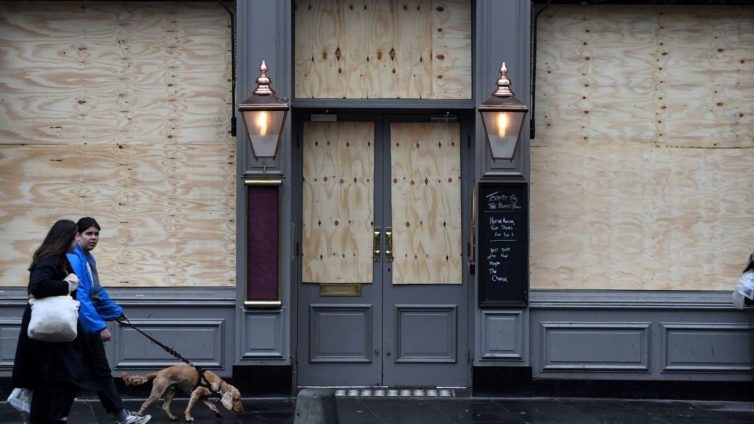
Audio By Carbonatix
There are almost 10,000 fewer licensed premises across Britain since the start of the coronavirus pandemic - with a rush of closures taking place since the summer despite a reopening of the economy, according to a report.
The latest market recovery monitor from industry consultants CGA and business advisory firm AlixPartners said the sector, including bars, pubs and restaurants, had shrunk by 9,900 sites to date with 980 closing their doors between July and September alone - a rate of 16-per-day.
It pointed to a range of "operational challenges" including labour shortages, disruption to supply and rising costs as being responsible for the latest wave of closures, which built on just shy of 6,000 during 2020.
The study said small, independent businesses bore the brunt of the problems as chains were more able to adapt to the challenges facing firms since the July reopening for the hospitality sector.Advertisement
Only managed estates were able to eek out growth though it was small.
The report highlighted the plight of nightclubs and said that they had suffered particularly badly with almost 100 lost since July to leave just over 1,000 in total by September.
Hospitality was among the sectors worst hit by lockdowns to control the spread of the disease since March 2020 and the largest claimant of furlough support through to the scheme's demise at the end of last month.
Industry body UKHospitality, which had pleaded for the wage aid to be extended, estimates 660,000 jobs have been lost in the sector during the pandemic.
It is campaigning for renewed support including for the rate of VAT - cut from 20% by the chancellor temporarily last year to help operators fight back - to be maintained at its interim level of 12.5%.
Graeme Smith, AlixPartners' managing director, said of its report: "These figures are a stark reminder, if needed, that the full lifting of restrictions in July did not signal an end to the challenges faced by hospitality businesses.
"The impact on nightclubs, which were unable to trade at all during the pandemic, has been particularly acute with almost one in 10 sites closing in the past two months.
"Demand remains strong but with staff shortages, utility cost inflation and supply-chain disruption, there are renewed efforts to secure continued government support to the industry to help it weather this storm as the reopening and rehabilitation process continues through what may be a challenging winter."
Latest Stories
-
GoldBod, Lands Ministry to lead land restoration in mining areas—Finance Minister
40 seconds -
Gospel community will bash me if I do a song with secular artiste – Piesie Esther
2 minutes -
Atlas Commodities says Ato Boateng cut all ties before joining COCOBOD
7 minutes -
Bekwai MP slams NDC for COCOBOD mismanagement, accuses gov’t of cheating farmers
11 minutes -
Atlas Commodities denies receiving COCOBOD seed funds, says operations privately financed
14 minutes -
Nigeria extends shea-nut export ban to boost domestic processing
27 minutes -
Medikal named ambassador for National Youth Authority’s ‘Red Means Stop’ drug campaign
28 minutes -
Danish PM calls snap election with Greenland issue centre-stage
30 minutes -
Girl, 14, shot dead as South Africa’s ‘taxi wars’ hit school
30 minutes -
Mahama’s Accra Reset calls for sovereignty and private capital to drive job creation
39 minutes -
Hillary Clinton to appear before US House panel investigating Epstein
1 hour -
All 59 fishermen rescued in armed raid by ‘Black Boat’ pirates – Awutu Senya West MP confirms
1 hour -
DVLA reviews plan to send staff abroad after public backlash
1 hour -
PURC says it has no dedicated system to monitor usage of ECG prepaid credits
1 hour -
Loyal customer wins Dubai trip in MTN and Emirates campaign
1 hour

